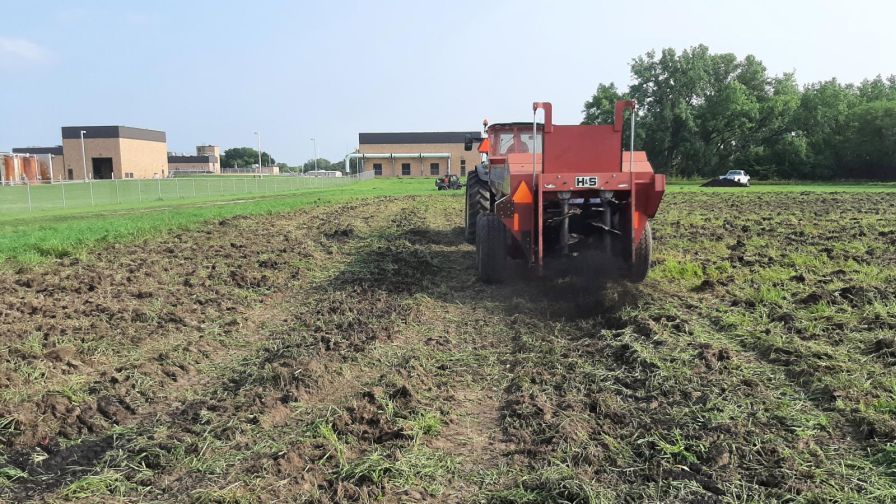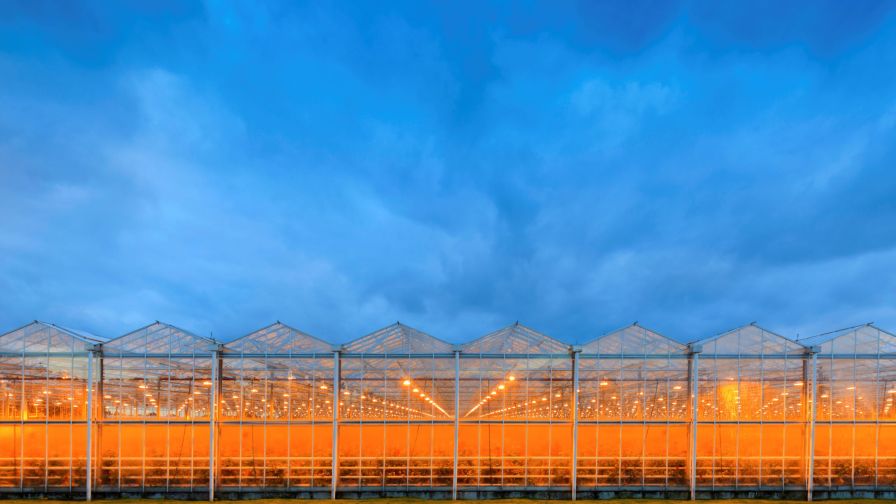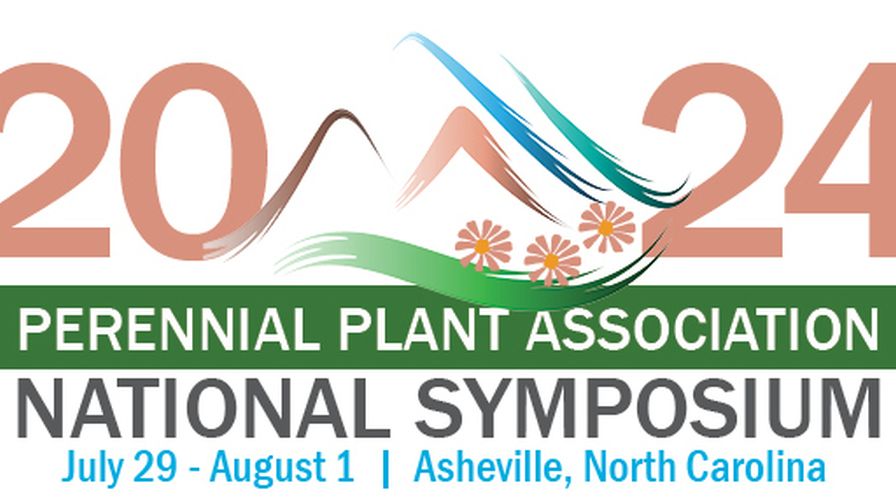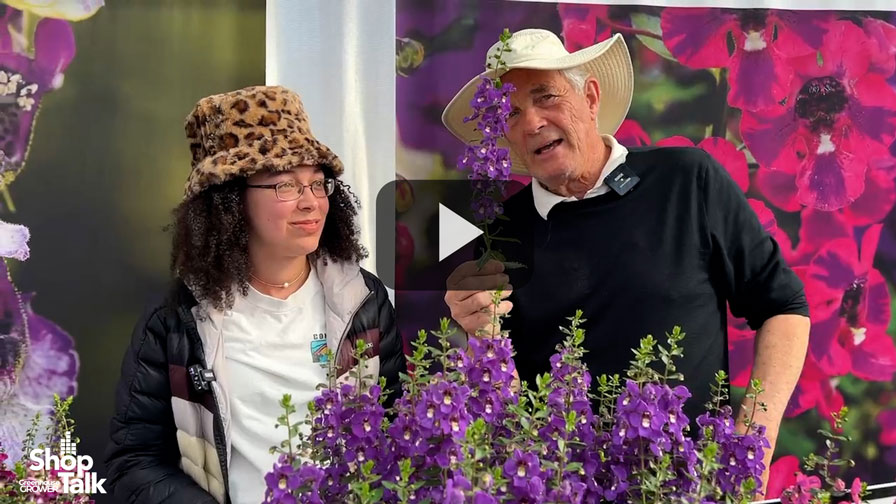Online Courses Help You Brush up on Greenhouse Lighting, Plant Nutrition, Biocontrols
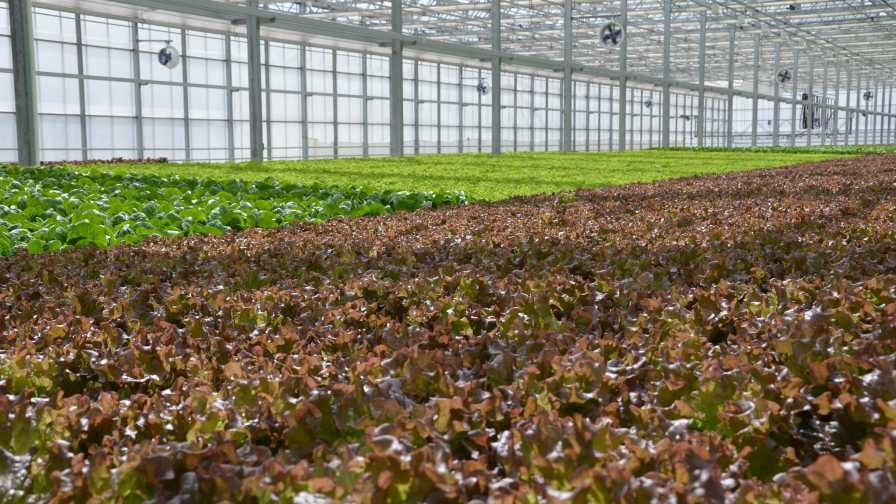 Greenhouse growers looking to refresh their knowledge on topics such as abiotic and nutritional disorders, greenhouse lighting, biological control, and fertility can register for the summer sessions of four self-paced courses in Michigan State University Extension’s Online College of Knowledge greenhouse series.
Greenhouse growers looking to refresh their knowledge on topics such as abiotic and nutritional disorders, greenhouse lighting, biological control, and fertility can register for the summer sessions of four self-paced courses in Michigan State University Extension’s Online College of Knowledge greenhouse series.
The courses cover the following:
- Abiotic Disorders of Greenhouse Crops
- Greenhouse and Horticultural Lighting
- Biological Control for Greenhouse Growers
- Floriculture Root Zone Management
The courses serve as an excellent resource for greenhouse growers new to the industry, or those growers and their teams who want to learn more about other areas of greenhouse crop production or pest management. All courses except the all new Abiotic Disorders of Greenhouses Crops are available in English and Spanish.
The non-credit courses in the series are pre-recorded, and registrants have three months to complete the courses (June 1 to August 31, 2020). Students in the course will take a pre-test and a final exam to gauge their learning on the topics. Registrants also can complete the optional self-assessment quizzes to engage with the material throughout the course. There are three scholarships per course available to those with financial need. Registration for all courses ends June 13, 2020.
Here’s a closer look at each course.
Abiotic Disorders of Greenhouse Crops (NEW for Summer 2020)
The Abiotic Disorders of Greenhouse Crops course is intended for greenhouse and ornamental plant growers who are interested in learning what factors induce or contribute to the onset of abiotic disorders of greenhouse crops. The course covers an introduction to diagnostics, differentiating biotic and abiotic plant problems, and plant symptoms as a result of the following nutritional, environmental, or cultural factors: pH, EC, light intensity, photoperiod, ethylene, chemical phytotoxicity, and herbicide damage. This course will guide you through the diagnostic process to learn what abiotic factors can cause plant problems causing top growth symptoms (on either foliage, stem, or flower buds) or root symptoms. Michigan State University Extension partnered with Dr. Garrett Owen (former Greenhouse Outreach Specialist at MSU) and current Assistant Extension Professor in the Department Horticulture at the University of Kentucky to develop the course.
Biological Control for Greenhouse Growers
MSU Extension partnered with Raymond Cloyd from Kansas State University Extension to offer an online course on biological control pest management. It is intended for greenhouse growers and others interested in learning about the challenges and opportunities associated with a biological control pest management program. The content of the course covers introductory materials to more advanced concepts such as utilizing banker plants.
Floriculture Root Zone Management
The Floriculture Root Zone Management course is for beginning-level floriculture growers. It covers the fundamental concepts about irrigation water and media, and their effects on plant nutrition. The course covers water sources, water quality, water treatment, irrigation methodology, and substrate components. The final unit of the course covers the essential elements for plant nutrition, how to select a fertilizer, and how to monitor nutrition of greenhouse crops.
Greenhouse and Horticultural Lighting
The Greenhouse and Horticultural Lighting Course is intended for greenhouse and ornamental plant growers and others interested in learning about the fundamental concepts about how plants respond to light quality, quantity, and duration. It provides introductory to moderately challenging content based on experiments performed at MSU. The units in the course cover photoperiod, photoperiodic lighting, light quality, quantity, and duration, and factors that should be considered when replacing or installing new lamps.
Register for all of the courses here.



